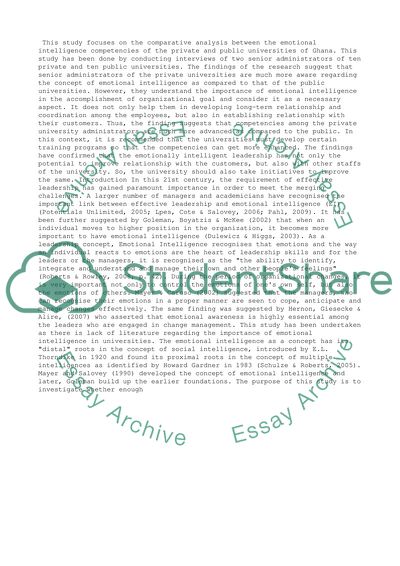Cite this document
(“Comparative analysis of emotional intelligence competences among Research Paper”, n.d.)
Comparative analysis of emotional intelligence competences among Research Paper. Retrieved from https://studentshare.org/management/1497380-comparative-analysis-of-emotional-intelligence
Comparative analysis of emotional intelligence competences among Research Paper. Retrieved from https://studentshare.org/management/1497380-comparative-analysis-of-emotional-intelligence
(Comparative Analysis of Emotional Intelligence Competences Among Research Paper)
Comparative Analysis of Emotional Intelligence Competences Among Research Paper. https://studentshare.org/management/1497380-comparative-analysis-of-emotional-intelligence.
Comparative Analysis of Emotional Intelligence Competences Among Research Paper. https://studentshare.org/management/1497380-comparative-analysis-of-emotional-intelligence.
“Comparative Analysis of Emotional Intelligence Competences Among Research Paper”, n.d. https://studentshare.org/management/1497380-comparative-analysis-of-emotional-intelligence.


